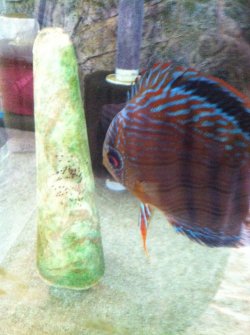madmark285
Fishaholic
So this is for your new tank? I think you don't have to buy it now,
Actually I am going try dry planting the tank first, it may be December before I fill the tank with water. I just finishing up my last home improvement project for the year, covering exterior wood windows with PVC and I plan on building a sump using the left over PVC sheets this weekend. I have to build a stand, connect plumbing to the sump and drill holes in the tank for the overflow. So I have plenty of things to do before worry about feeding my fish (it going to be a Tiger barb tank).
I have a 20 gallon tank where I can start the cycling process earlier using ammonia in a bottle.


